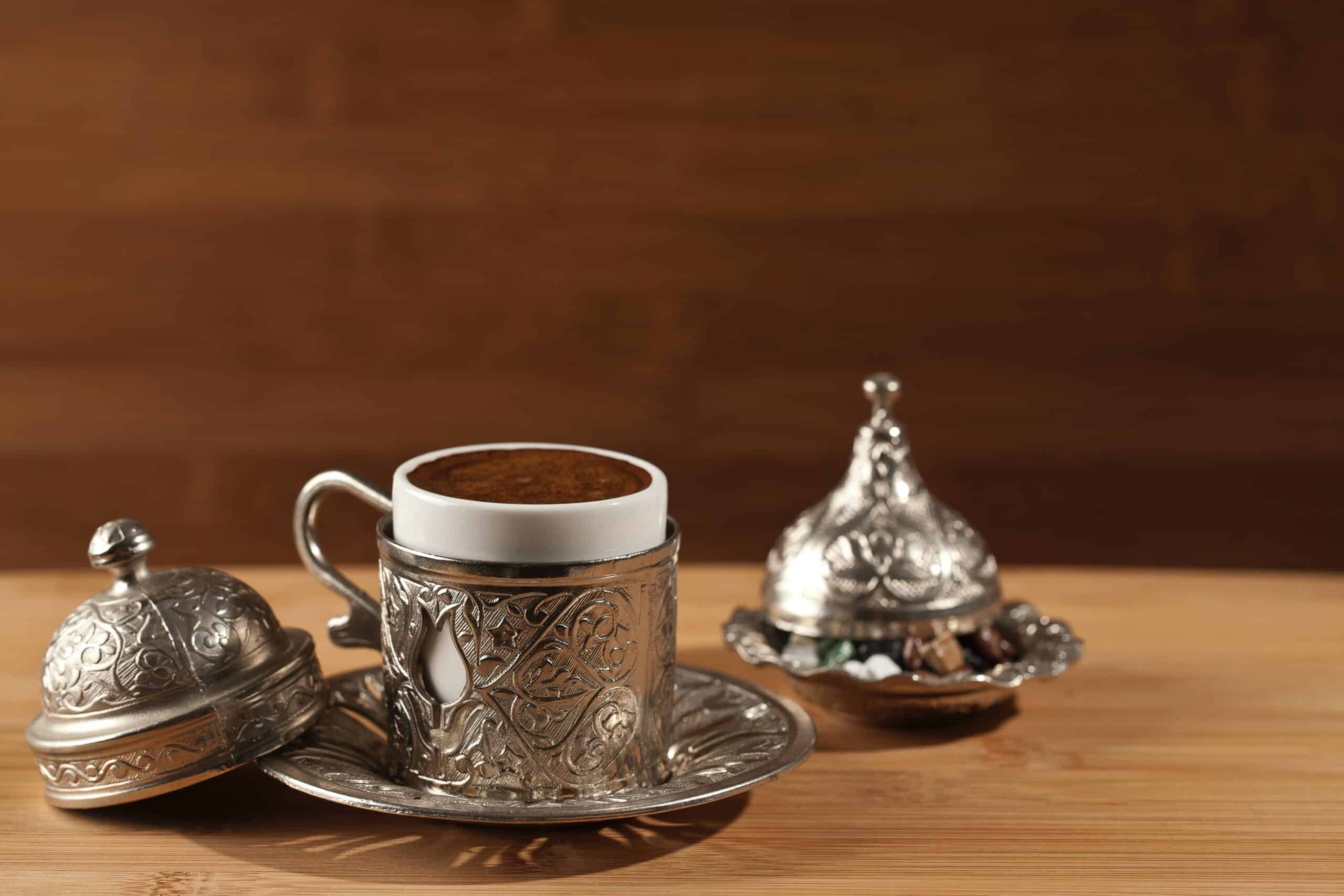Arabic coffee, often referred to as Turkish coffee or Arab coffee is a notorious cultural symbol across the Middle East and North Africa. Numerous people assume that what makes Arabic coffee different from the coffee consumed away in the world is the type of bean used, but this isn’t the case. Arabic coffee uses the same Arabica bean found in our espressos and caramel lattes, but the distinct styles of medication and added flavours are what make it unique.
Arab coffee is made by first roasting coffee beans to varying degrees & then adding cardamom. This spice is added because it adds flavour complexity, the coffee becomes more fragrant and it also removes some of the intrinsic bitterness from the roasted beans. Cardamom originated in India but is available worldwide today and used in both sweet and savoury recipes. It is also said that cardamom cancels out the effect of caffeine and can help in reducing the acid in coffee. Some studies have also shown that cardamom may be helpful for people with high blood pressure as cardamom is rich in compounds that may fight inflammation.
While there are no substantial research papers proving this concept, many caffeine-sensitive individuals would certainly tell you that this is a fact. Another reason why cardamom is used is that it pairs well with coffee, a symbiosis of flavors (similar to how certain foods can enhance the coffee-drinking experience). In some regions, other spices, such as saffron, cinnamon, clove, or nutmeg are added. The blend is boiled for a short period and served extremely hot in small drinking cups that rapidly cool the Arab coffee.
For many Arabs, preparing, serving & drinking coffee is not just a morning ritual, but it is also a way to conjure distant memories and traditions through taste and smell.



















